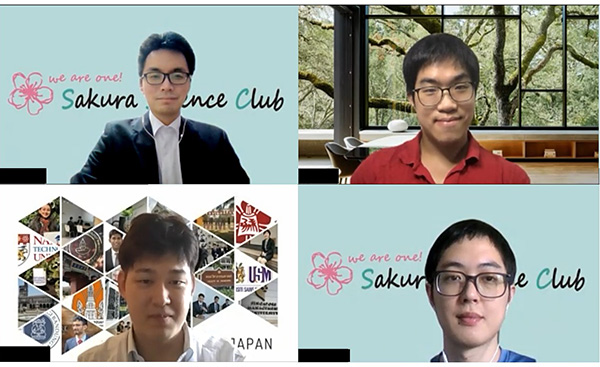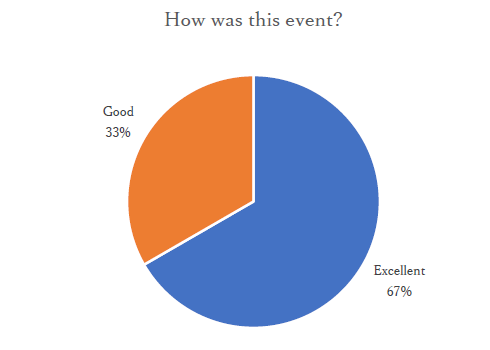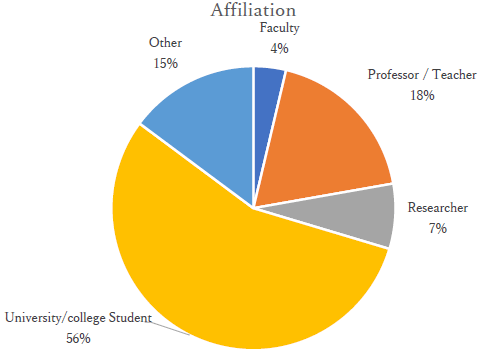Events
Job-Hunting in Japan: SSC Japan Event Shares Insights and Strategies

On Saturday, September 4th, the “Excelling Job-Hunting in Japan as an International Student” seminar was held online, co-hosted by SSC in Japan and JST. Almost half of the attendants were college and university students. More than half of survey respondents evaluated the event highly. The event was planned and moderated by Mr. Lai Hung Wei, the main coordinator of SSC Japan.
Session 1: Mr. Huang Lei
System Engineer at JBCC Corporation and SSC Japan Coordinator
The first speaker, Mr. Huang Lei, outlined both the pros (safety, good medical system, salary) and cons (communication with colleagues/boss, amount of work) of working in Japan, as well as the basic process for job-hunting. This begins with submitting an application, followed by written company exams, and finally a series of interviews. He urged listeners to prepare early, to be aware of cultural expectations, and to improve their Japanese skills. Getting a part-time job while enrolled in the Japanese university will improve both one’s Japanese ability and social skills, he recommended.
International professionals are now eligible to apply for Japan’s Highly Skilled Foreign Professional (HSFP) visa, similar to the H1-B in the U.S. If a person obtains the HSFP visa in Japan, he or she will have better access to the Permanent Resident visa, which Mr. Huang Lei obtained recently.
In the Q&A, an attendee asked about the importance of learning kanji. Mr. Huang recommended studying it in addition to hiragana and katakana. Although international employees will not be asked to write kanji, a basic level of literacy is necessary to understand emails and other work documents. Mr. Lai Hung Wei recommended studying five kanji per day for a year in order to quickly improve basic reading skills.
In response to a question about whether to get a master’s degree in Japan before applying for a job, Mr. Huang strongly recommended going through a master’s program before job-hunting. Compared to working straight away with a bachelor’s degree, “you will have more time for language study, and for making friends. Your starting salary will also be higher.”
On the other hand, Mr. Huang cautioned against getting a PhD in Japan. He felt that PhDs weren’t automatically better than master’s degrees, and they may actually decrease one’s chances at getting a job in a non-academic field.
Session 2: Mr. Austin Zeng
President of MEXT Scholars Association
The next speaker, Mr. Austin Zeng, shared compelling data arguing that language skills and so-called “soft skills” (teamwork, awareness of Japanese expectations, etc) can sometimes be even more important than the technical skills students learn at university.
While many Japanese companies conduct “potential-based hiring” (bringing on fresh graduates that they can easily train), he reminded listeners that there are thousands of companies in Japan. So, it is important “to look for the right tree─not the full forest.”
To illustrate, Mr. Zeng prepared three case studies. Company A, a Japanese consulting firm with 1000-plus employees would prioritize bilingual international students, and would likely prefer graduates from top-tier universities.
In contrast, Company B, an internet startup with 40-50 employees, would likely not require strong Japanese language abilities. New hires would rather need to demonstrate robust programming skills in order to be hired.
Finally, Company C, a large manufacturer focused on domestic sales, might not be interested in hiring foreign workers at all, even if the candidates have N1-level Japanese ability.
In summary, while Japanese companies do indeed follow broad trends in hiring, they are not monolithic—in Mr. Zeng’s words, “there is so much outside the average.” Job-hunters should “understand each employer to find your fit.”
In the Q&A session, Mr. Zeng answered questions about burnout and learning Japanese. He said he was able to work during university because his course load in political science wasn’t very heavy. So he didn’t have to worry about burnout. He strongly agreed that it was possible to learn a high level of Japanese from anime, but it required a concerted effort.
Another participant asked how to answer job interview questions on “reasons for wanting to work in Japan.” Mr. Zeng said it’s important to emphasize what you actively want to contribute to society, rather than what you enjoy about Japan and its culture.
Session 3: Mr. Fukushima Satoshi
Career Consultant for ASIA to JAPAN
The final speaker, Mr. Fukushima Satoshi, talked about Japan’s job-hunting system. He showed several examples of what different companies might expect from new employees, and encouraged attendees to think through these situations.
Mr. Fukushima then spoke about the job-hunting process itself. Japan’s academic/fiscal year runs from April to March. Therefore, the high season for hiring new graduates is June through September. “Official” job offers are given in October. If applicants miss this window, it becomes much more difficult to get job offers.
He recommends getting internships, entering technical competitions like Kaggle, and taking the JLPT test. Starting in the month of February─one year before graduation, he suggests registering at recruiting websites and with HR agents, and joining as many company briefings as possible. You can learn basic facts from JASSO’s Job-Hunting Guide for International Students:
https://www.jasso.go.jp/en/ryugaku/after_study_j/job/guide.html
Thanks to the internet, even students not based in Japan can now participate in virtual job fairs from overseas (e.g. ASEAN Career Fair, Boston Career Forum). One can also apply for jobs through the university’s career center, or can go through individual company recruiting websites where offers come faster.
Many Japanese companies look for long-term employees, and so a candidate’s character is important. “Character” includes good communication abilities, the ability to work well on a team, and the ability to work through stressful situations.
In the Q&A, Mr. Fukushima explained that on average, successful applicants have at least an N3 on the JLPT, plus conversational Japanese. For those seeking academic positions in Japan, he suggested finding openings through J-REC Portal:
https://jrecin.jst.go.jp/seek/SeekTop?ln=1
In reply to a question on social norms at companies, Mr. Fukushima brought up the expectation to do overtime. This trend has been decreasing in recent years, but is still considered a duty.
Finally, in response to a question about the need for English at Japanese companies, Mr. Fukushima said no English was fine as long as there was Japanese ability.
Once again, the secretariat would like to thank the speakers, the moderator, and attendees for making the event interactive and lively. Wherever you may be, we wish the best in your ongoing job-hunts!









